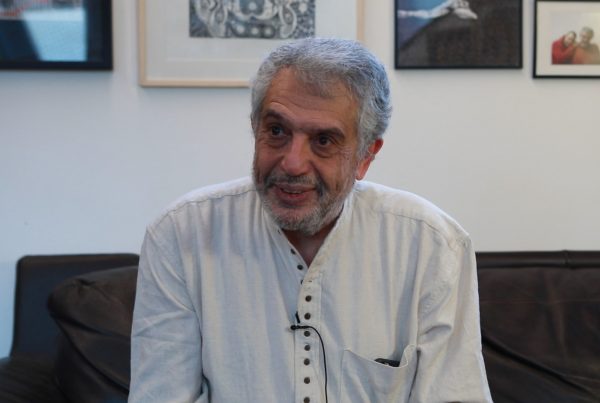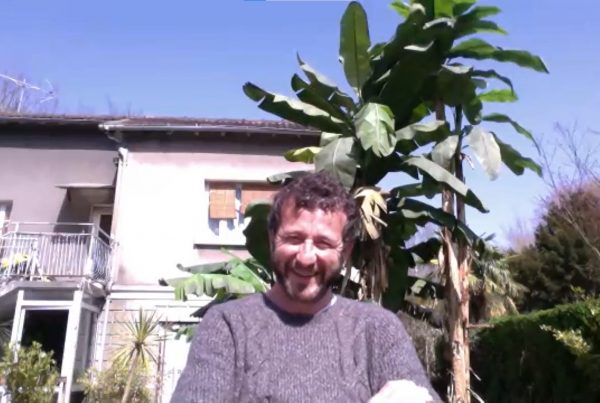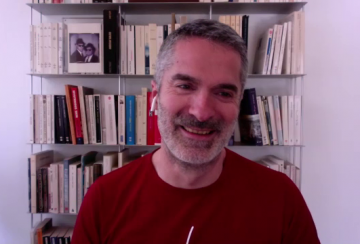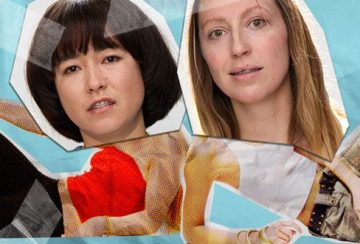Lost, The Leftovers, Watchmen – Lindelof, the new prophet of tv shows
While Damon Lindelof’s new tv show, Watchmen, is in full swing, Sarah Hatchuel and Pacôme Thiellement wrote an essay about his previous show, The Leftovers. Return on a work haunted by the catastrophe to come.
By Caroline Veunac
![]() Reading time 5 min.
Reading time 5 min.
What will Watchmen tell us about the neurosis of our time ? It is still too early to know : the show only started airing in October on HBO. While the first few episodes seem to show a shift in the power balance between politics and art in today’s society, we are not sure yet of where the uchrony Damon Lindeloff offers us is going. But we could already bet the showrunner, successively scorned and worshiped, of Lost and The Leftovers will manage to make his adaptation of Alan Moore’s comic book a new vessel of his relation to the world and to human condition.
In The Leftovers, le troisième côté du miroir, passionate and fascinating book published at Playlist Society, the essayist Pacôme Thiellement and the scholar Sarah Hatchuel make their way into Lindolfian lands. Armed with references to gnosticism and shakespearian theater, they particularly focus on a loving exegesis of The Leftovers, Lost’s ill fake-twin, with which it forms a very personal work, filled with oeudipian complexe, pre-apocalyptical anguish and spiritual quest.
Though this pop-philosophical study of The Leftovers underlines the psyche of its creator, it mainly approaches its object through a prophetic angle, like the great show of our collective denial facing the ravages of the anthropocene. What use is there getting comfy watching tv shows when we rather should be saving what we have left to save ? Two years after the Leftovers, the question remains more burning than ever.
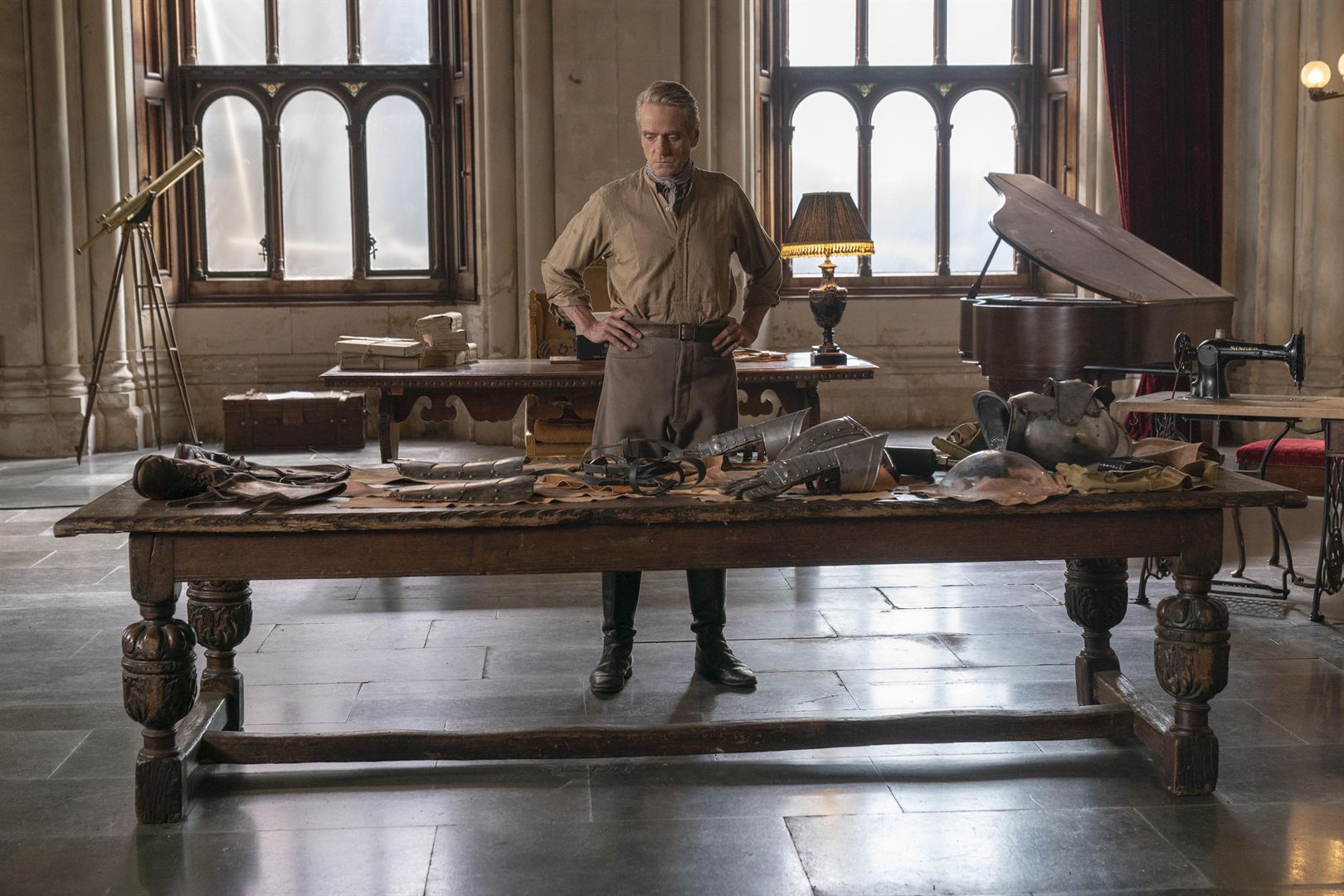
What use is there getting comfy watching tv shows when we rather should be saving what we have left to save ?
You are fervent « lostians » : when you discovered The Leftovers en 2014, did you « find » Damon Lindelof right away ?
Sarah Hatchuel : Yes, when I discovered The Leftovers, I had the feeling I was in a world both familiar and different from Lost’s. Lost told the story of heroes going missing. In The Leftovers, we are with those who were left behind, and we have to live with that. The Leftovers is Lost’s B side.
Pacôme Thiellement : After Lost, Lindelof became a sort of freelance writer for Hollywood, a screenplay technician, with mediocre results. He was just like Jack Shepard ( ed. Lost’s good samaritan), he fixed scripts in distress, but he was better off letting them die. Every medium has its own genius, and being good at one doesn’t mean we’re great for another, just because we used the same tools. When I head Lindelof was going back to television, I was really looking forward to it. And right from the first minutes of the first episode, I found signatures that were like handshakes to the Lost fan : lines echoing, like « Why am I not on the list ? », quotes from Wittgenstein, Pasty Clyne’s music, the encounter with the dog…And mostly that fact that he is telling us « Cover your eyes and let me guide you. »
Au-delà des effets de signature, quelles grandes idées Damon Lindelof poursuit-il de Lost à The Leftovers ?
Pacôme Thiellement : Lost ends with three mains ideas, that can be seen as three survival techniques regarding the coming times : remember, let go and move on. And we find them in the first two seasons of The Leftovers. Remember sends back to the fact that we always forget what is essential. It is a gnostic element, and it is embodied by the Guilty Remnants, who force people to remember. Let go, is another version of Let it be, or the idea of letting go that we find in Eastern thinking, embodied by Holy Wayne, the guru of the first season who takes away people’s tying and pain. Move on, the idea of keeping on living in spite of all, is embodied by the pastor, Matt Jamison.
So there is a continuity between the two shows, but also a major difference : in Lost, the island was used as a compass, whereas The Leftovers is a disoriented tv show… Did Lindelof lose his faith in the world and humanity ?
Sarah Hatchuel : In Lost, there still was a hope to change things on the ecological aspect. When the island is threatened to be destructed, when the elements rage and the spring dries up, they just have to patch it up and everything is fine. In The Leftovers, it’s the exact opposite. This time, Lindelof tells us that there is no hope, the ecological catastrophe is irreversible. We tell ourselves that we are going to stop printing on paper because it’s bad for the environment, that we are going to favour using emails and e-books, but then we are told that data storage is the worst regarding impacts on the climate. So we don’t know what to do anymore in order to not have destructive responsibilities on the world. We are in the same state as the characters in The Leftovers, who don’t know what to think or what to want.
In the end, Kevin finds Nora years later and decides to believe her odd story so their love can start again. Surely this « happy end » is based on a mutual lie…but isn’t the prospect of a shared peaceful life the compass we were missing until now ?
Sarah Hatchuel : Nora’s ascetic life, her choice of becoming a witch herself, on the marge of society, and to have built her own little Noa’s Arch there, is really beautiful indeed. But what I thought was missing, was the idea of a collective fight. This end says : « Ok, I know the Apocalypse is coming, and I am waiting for it by myself. » It is a fiction that adapts itself to the end of the world instead of trying to fight it. In Lost, everyone acts collectively to save the island. In The Leftovers, solidarity gave way to the research of happiness, in the stillness of recovered love.
Lost and The Leftovers constitute a diptych to be used by its contemporaries. Does Watchmen appears to also be a tv show about our time?
Pacôme Thiellement : In Watchmen, Lindelof creates an alternative universe, in which people of power today find themselves in the place of beggars, and are now the ones committing terrorist actions. Lindelof is a leftist creating what could be a political utopia for a lot of us, and tries to see how it could turn into a nightmare. Watchmen reviews a situation through the prism of al the issues it raises. And that is very lindelofian.
Voir aussi

